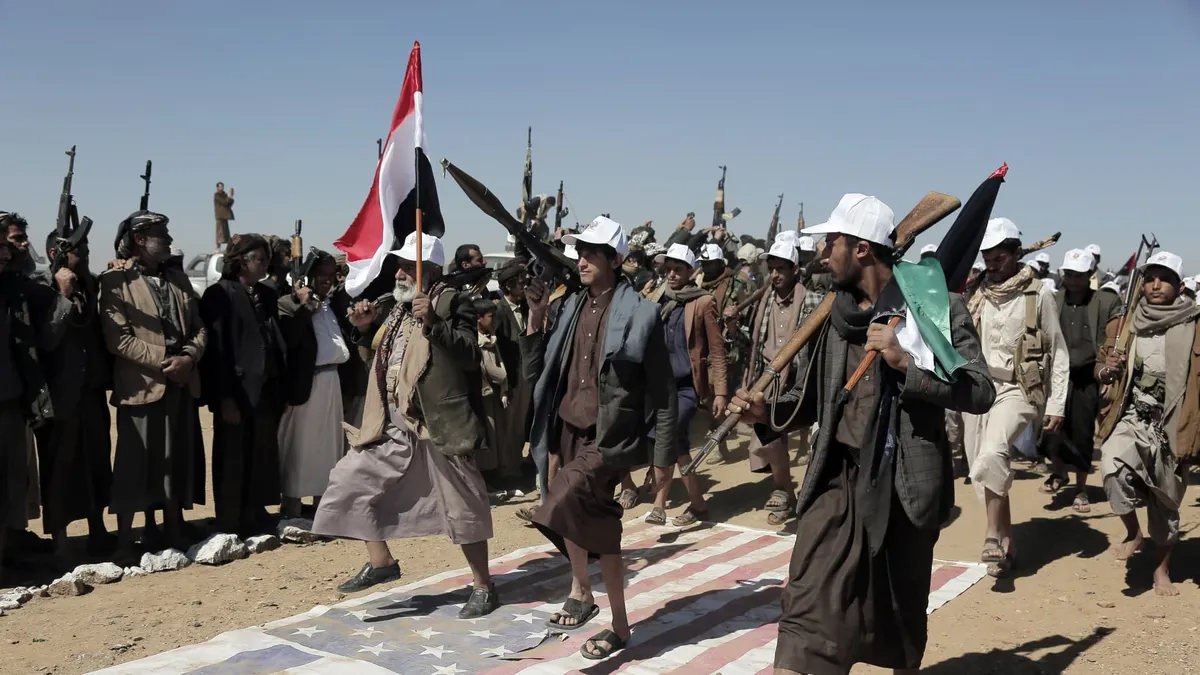
In a significant escalation of military action, U.S. President Donald Trump ordered large-scale military strikes against Yemen's Iran-aligned Houthis on Saturday, resulting in the tragic deaths of at least 19 individuals. This military operation comes in response to the Houthis' recent attacks on shipping in the Red Sea, with Trump warning that "hell will rain down" on the group if their actions do not cease.
Trump also issued a stern warning to Iran, the primary supporter of the Houthis, demanding that the nation immediately stop its backing of the group. He stated, "If Iran threatens the United States, America will hold you fully accountable, and we won't be nice about it!" This marked the largest U.S. military operation in the Middle East since Trump assumed office in January, signaling a shift towards a more aggressive stance against Iranian influence in the region.
The consequences of the U.S. strikes have been devastating, with reports indicating that at least 13 civilians were killed and nine others injured in airstrikes targeting Yemen's capital, Sanaa, according to the Houthi-run health ministry. In a separate strike on the northern province of Saada, six additional people, including four children and one woman, lost their lives, with 11 more injured. The Houthi political bureau condemned the attacks as a "war crime" and stated that their armed forces are prepared to respond with equal force.
Residents in Sanaa described the strikes as violent explosions reminiscent of an earthquake, which left women and children terrified. Abdullah Yahia, a local resident, shared his experience, emphasizing the distress caused by the military actions.
The Houthis, an armed movement that has maintained control over much of Yemen for over a decade, have conducted more than 100 attacks targeting shipping since November 2023. These actions have disrupted global commerce, leading the U.S. military to engage in costly operations aimed at intercepting missiles and drones, depleting U.S. air defense stocks. The Houthis justify their attacks as acts of solidarity with Palestinians amid the ongoing conflict with Hamas in Gaza.
Despite setbacks faced by Iran's other allies, including Hamas and Hezbollah, the Houthis have shown resilience, successfully sinking vessels and seizing others, which has necessitated rerouting global shipping through longer, more expensive paths around southern Africa. The previous U.S. administration under Joe Biden aimed to weaken the Houthis' capacity to threaten maritime security but adopted a more restrained approach compared to Trump's newly authorized aggressive strategy.
The recent strikes were conducted with the assistance of fighter aircraft from the USS Harry S. Truman aircraft carrier stationed in the Red Sea. The U.S. Central Command characterized these operations as the initiation of a comprehensive military campaign across Yemen. U.S. Defense Secretary Pete Hegseth remarked that Houthi attacks on American ships and troops would not be tolerated, asserting that freedom of navigation must be restored in affected waters.
Trump hinted at the possibility of even more severe military actions against Yemen, stating that the Houthis' aggression would not be tolerated and that overwhelming lethal force would be employed to achieve U.S. objectives. In a related development, the Houthis announced their intention to resume attacks on Israeli vessels in the Red Sea and Arabian Sea, signaling a return to hostilities following a brief period of relative calm.
The military actions come shortly after a letter was sent to Iranian Supreme Leader Ayatollah Ali Khamenei from Trump, proposing negotiations concerning Iran's nuclear program. However, Khamenei has since rejected the idea of talks with the United States. Despite the ongoing military tensions, Iranian officials have expressed concern that public dissatisfaction over economic challenges could lead to widespread protests in Iran.
While Iran has consistently denied ambitions to develop nuclear weapons, it has been accelerating uranium enrichment efforts, raising levels to nearly 60% purity. The International Atomic Energy Agency has warned that this enrichment approaches the weapons-grade threshold of approximately 90%. Western nations argue that such high levels of enrichment are unnecessary for any civilian program, and no other nation has pursued such actions without eventually developing nuclear weapons.
As the situation continues to unfold, the implications of these military strikes and the broader conflict will be pivotal in shaping regional dynamics and international relations. The U.S. stance against both the Houthis and Iran emphasizes a commitment to ensuring maritime security and addressing perceived threats to American interests.